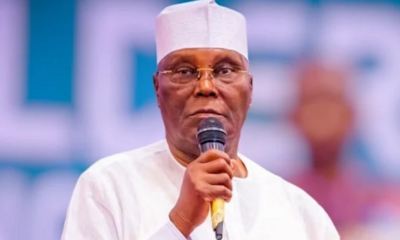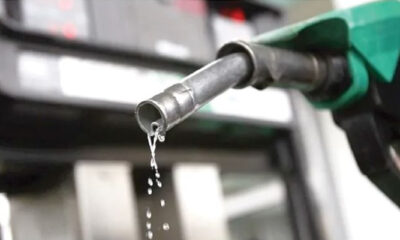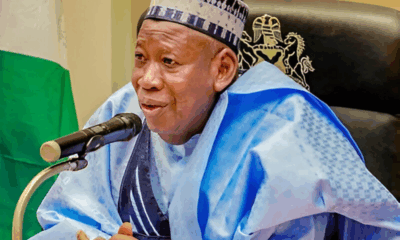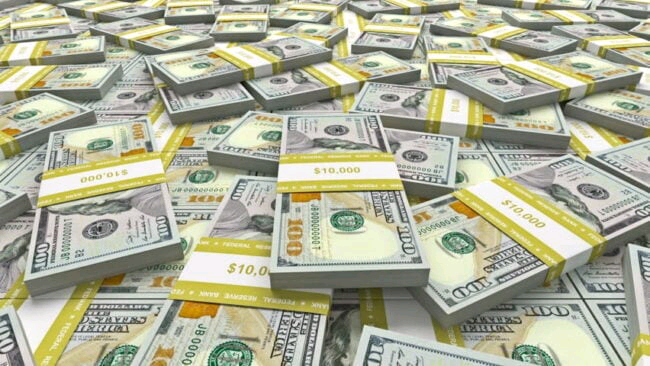Nigeria’s foreign reserves decreased by $2.55 billion in the first quarter (Q1) of 2025.
According to data from the Central Bank of Nigeria (CBN), analysis (by TheCable Index) revealed that foreign reserves fell by 6.23 percent, dropping from $40.88 billion on January 2 to $38.33 billion by March 27.
Further analysis indicated that this represents the largest decline in the first quarter over the past five years.
- In Q1 2024, foreign reserves reduced by $810.66 million (2.45 percent).
- In Q1 2023, the drop was $1.57 billion (4.24 percent).
- In Q1 2022, reserves shrank by $827.34 million (2.32 percent).
- Nigeria’s Foreign Investment Declines by 30% During the Period.
The reduction in foreign reserves coincided with a decline in “foreign portfolio investment (FPI)” in the first quarter.
According to data from the Nigerian Exchange Limited (NGX), TheCable Index found that “FPI” decreased by 30.3 percent between January and February. The NGX has yet to release data for March.
In January, NGX reported that Nigeria attracted “$17.35 million in foreign direct investments through equities.” However, in February, foreign inflows declined to “$12.09 million.”
During this time, foreign outflows exceeded foreign inflows, with “$31.01 million recorded in January” and “$16.48 million reported the next month.”
Data for “foreign direct investments (FDI)” during this period has not yet been published.
‘Low Petrodollar, CBN Intervention Contributed to External Reserves Decline’
According to “Charles Abuede,” research lead at “Cowry Asset Management Limited,” the decline in foreign reserves in Q1 2025 reflects a shortage of “foreign exchange (FX) inflows” into the economy.
Abuede attributed this to “minimal petrodollar earnings” and “CBN’s intervention in the FX market” through the sale of “$25,000 weekly to bureau de change (BDC) operators.”
“The depletion of Nigeria’s foreign reserves in the first quarter of 2025 clearly indicates a lack of foreign exchange (FX) inflows into the economy,” he said.
“This is largely due to minimal petrodollar earnings, as crude oil prices remain uncertain, fluctuating between $65 and $70 per barrel.
“It may also reflect the Central Bank of Nigeria’s (CBN) ongoing efforts to defend the Naira, alongside the $25,000 weekly FX sales to Bureau de Change (BDC) operators to maintain liquidity in the market.”
“Muda Yusuf,” CEO of the “Centre for the Promotion of Private Enterprise (CPPE),” agreed, suggesting that consistent “CBN interventions” have been steadily depleting reserves.
“Because if we are having that, and we are not having sufficient inflows to balance out those outflows, that could be a possibility. You know, the CBN has been very consistent in defending the currency, which is not a bad idea. What is important is to ensure that we are doing so within a sustainable framework so that it doesn’t create an unnecessary crisis for us,” Yusuf said.
“Secondly, the very depletion of reserves is also possibly triggering some speculative pressure on the market. If people begin to notice that reserves have been declining, it could increase demand pressure on the foreign exchange market.”
Foreign Reserves Decline May Increase Pressure on Naira
During this period, the exchange rate in the official “FX market” moved from “N1,534 per dollar on January 3” to “N1,539/$ on March 26.”
In the parallel market, the “Naira” appreciated from “N1,650/$ to N1,560 per dollar”—a “5.45% appreciation.”
However, Abuede warned that a continued decline in reserves could put further pressure on the local currency, undermining its recent gains.
“This decline will exert further pressure on the local currency, as the apex bank continues its intervention. The key issue is that FX outflows are not being matched by sufficient inflows,” he said.
Yusuf also cautioned that the reserves decline might fuel speculation in the “FX market,” creating concerns about stability and potentially driving further depreciation of the “Naira.”
What FG, CBN Must Do to Increase Foreign Reserves
Abuede stressed that achieving the “2025 budget target of 2.06 million barrels per day (mbpd) of crude oil production” is vital to replenishing foreign reserves.
“To mitigate this challenge, Nigeria must ensure a steady influx of FX into the economy. Achieving the ambitious 2025 budget target of 2.06 million barrels per day (mbpd) of crude oil production is crucial,” he said.
“Additionally, diversifying FX sources beyond crude oil and implementing policies that attract foreign investment and boost remittance inflows will be essential in stabilizing the currency and strengthening external reserves.”
Yusuf recommended that the “CBN” maintain its market-driven approach to “FX policy” while also ensuring increased oil production.
“The second thing has to happen on the fiscal side, and that is about oil production. I am not sure we are still making up our oil output as of now. There are issues around the Niger Delta, and this Rivers State crisis is also possibly contributing to it.”
He also encouraged continued efforts to attract investments from Nigerians in the diaspora through financial instruments and other channels.

 BIG STORY1 day ago
BIG STORY1 day ago
 BIG STORY1 day ago
BIG STORY1 day ago
 BIG STORY1 day ago
BIG STORY1 day ago
 BIG STORY1 day ago
BIG STORY1 day ago
 BIG STORY3 days ago
BIG STORY3 days ago
 BIG STORY2 days ago
BIG STORY2 days ago
 BIG STORY5 days ago
BIG STORY5 days ago
 BIG STORY5 hours ago
BIG STORY5 hours ago






















